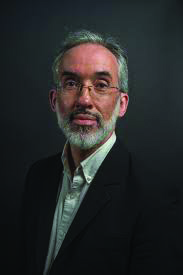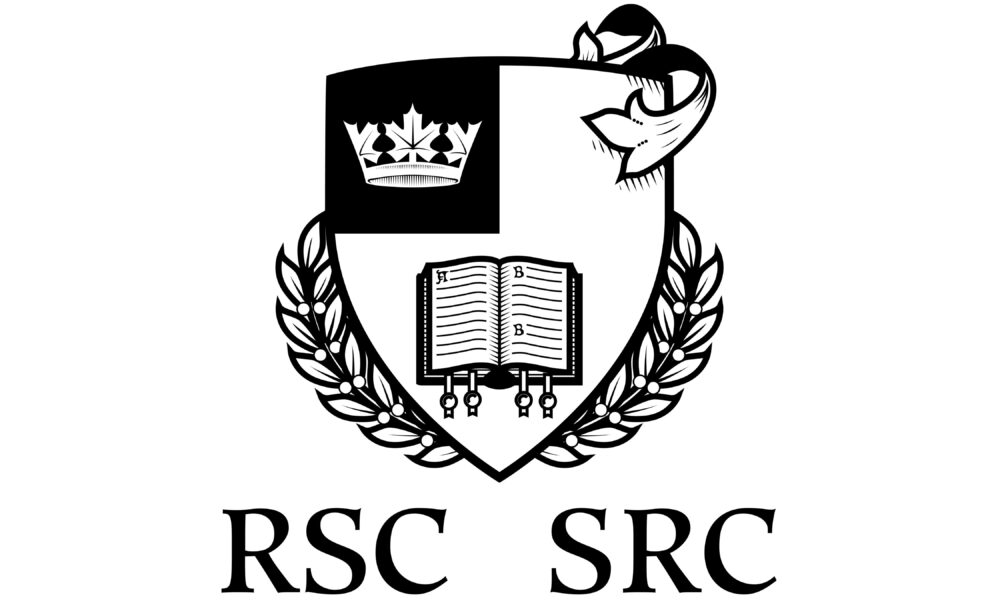The Royal Society of Canada (RSC) recently announced that 51 new members would be inducted to The College of New Scholars, Artists and Scientists, among which are 10 McGill researchers whose hard work and excellence will be recognized at the RSC Celebration of Excellence and Engagement on Nov. 19, 2021. In exclusive interviews with The McGill Tribune, four inductees discussed the inspirations behind their groundbreaking research that afforded them this honour.

Frédéric Charbonneau
Department of French Literature
Born in Montreal to a family of artists and academics, Frédéric Charbonneau was motivated by family role models to pursue a career in academia. His parents were both philosophy professors at Collège Ahuntsic and his uncle, also a professor, was once elected to the RSC. As for himself, Charbonneau studied sciences in college, then studied East Asian and Chinese studies at McGill, only later pursuing French literature at Université de Montréal and in Paris. It was not until he started his university studies that Charbonneau realized that he wanted to focus his research on The Old Regime—the political and social system of France prior to the French Revolution—which eventually led him to complete a master’s and doctorate in the field.
Part of Charbonneau’s research links literature and medicine, analyzing how these two seemingly different fields have been historically connected.
“It was in the 19th century that science and language were separated and became the two independent subjects they are today,” Charbonneau wrote in an email to the Tribune.
Charbonneau’s eminent passion for literature drove him to pursue a career in academia, publishing dozens of books and holding the William Dawson Research Chair in 18th Century Literature position for ten years.
“[People should] choose a subject that they have a strong personal interest in, to the point of necessity, because research is an exploration of the self,” Charbonneau wrote.

Greg Matlashewski
Department of Microbiology and Immunology
Greg Matlashewski completed a PhD at the University of Ottawa and later conducted postdoctoral research in London, England, where he studied viral genes that cause cancer. However, Matlashewski holds one particular topic dear to his heart: Research on leishmaniasis, a deadly, parasitic disease found in several countries around the world such as India and Nepal.
He started researching this disease at McGill when he joined the Institute of Parasitology in 1987. In Peru, between 1998-2006, alongside Dr. Alejandro Llanos of Cayetano Heredia University, Matlashewski developed a treatment for a particular type of Leishmaniasis called cutaneous Leishmaniasis.
However, his research didn’t stop at McGill laboratories; Matlashewski led the visceral leishmaniasis elimination program at the World Health Organization (WHO) between 2009 and 2011. “I realized the major problem in this part of the world was not the lack of effective drugs, but the lack of good surveillance to ensure that people who needed treatment were treated,” Matlashewski wrote in an email to the Tribune.

Rowan Barrett
Department of Biology
Rowan Barrett knew that he loved biology and spending time in nature from a young age. Barrett conducted postdoctoral research at Harvard, eventually becoming an assistant professor in the Department of Biology at McGill. Barret teaches courses such as BIOL 305 (Animal Diversity) and his research primarily focusses on genetics and evolution.
“[My passion lies in the] detective work involved in observing a pattern in nature and then trying to devise ways to test hypotheses about the mechanisms that generated it,” Barrett wrote in an email to the Tribune.
Barret believes that one of the most important characteristics of a researcher is being able to identify and learn from mistakes.
“Don’t be afraid to make mistakes, we often make the most progress when we try to do things that are hard!” Barrett wrote.

Anna Weinberg
Department of Psychology
Anna Weinberg did not take the conventional route to becoming a psychologist. After studying English and studio arts at Wesleyan University in Connecticut, and working as a journalist for several years, Weinberg made the switch to an academic career in her late twenties. Weinberg started taking classes at night and working in psychology labs at Columbia University during the day.
The terrorist attacks of Sept. 11, 2001 changed everything for her. Living in New York and witnessing the tragedy with her own eyes, Weinberg was motivated to work on a project with other psychologists to understand why some people struggled with PTSD and other mood disorders after experiencing traumatic events, and others did not.
This proved a pivotal moment for Weinberg as she decided to pursue a career in clinical psychology. Weinberg then went on to pursue a PhD at Stony Brook University and eventually became a member of the Department of Psychology at McGill in 2015, where she founded the Translational Research in Affect and Cognition (TRAC) lab. In her lab, she studies neural responses that reflect vulnerability to certain mood disorders, specifically, anxiety and depression.
Experts have always debated whether genetic or societal factors play a larger role in mood disorders, but Weinberg believes that neither should be studied in isolation.
“Our genetics lead us to seek out certain environments,” Weinberg wrote in an email to the Tribune. “[We are] demonstrating that genes and environment are not independent of one another, both are extremely important and we have to consider both.”






